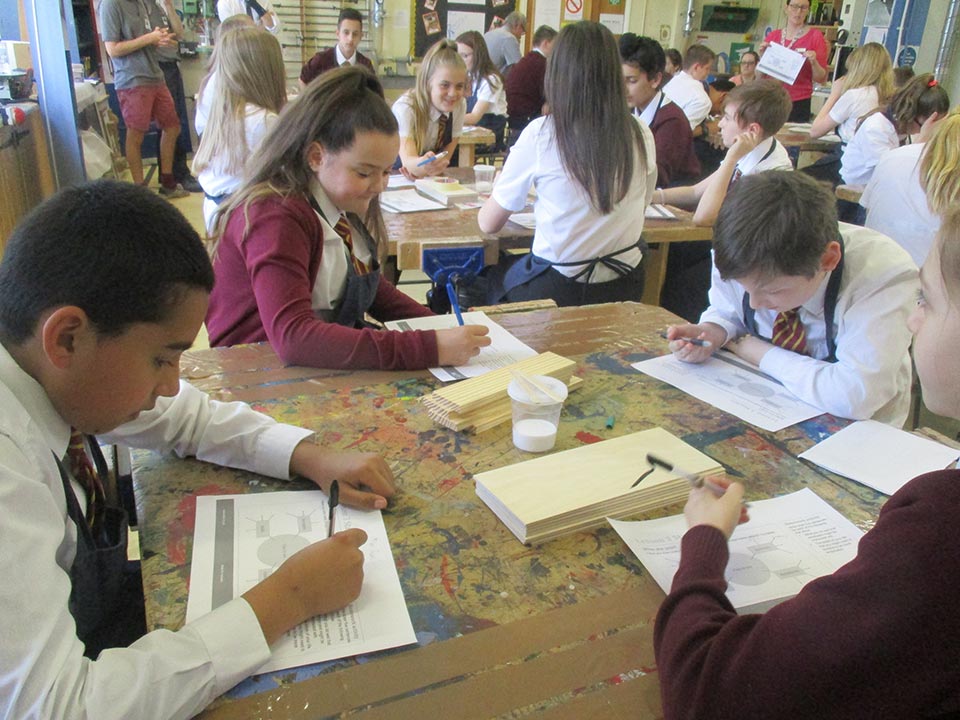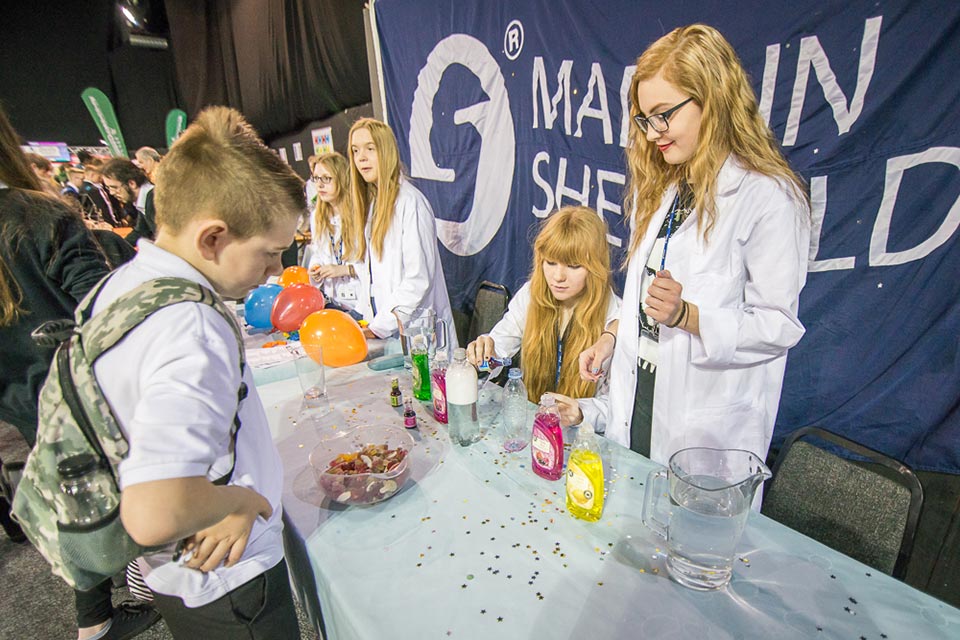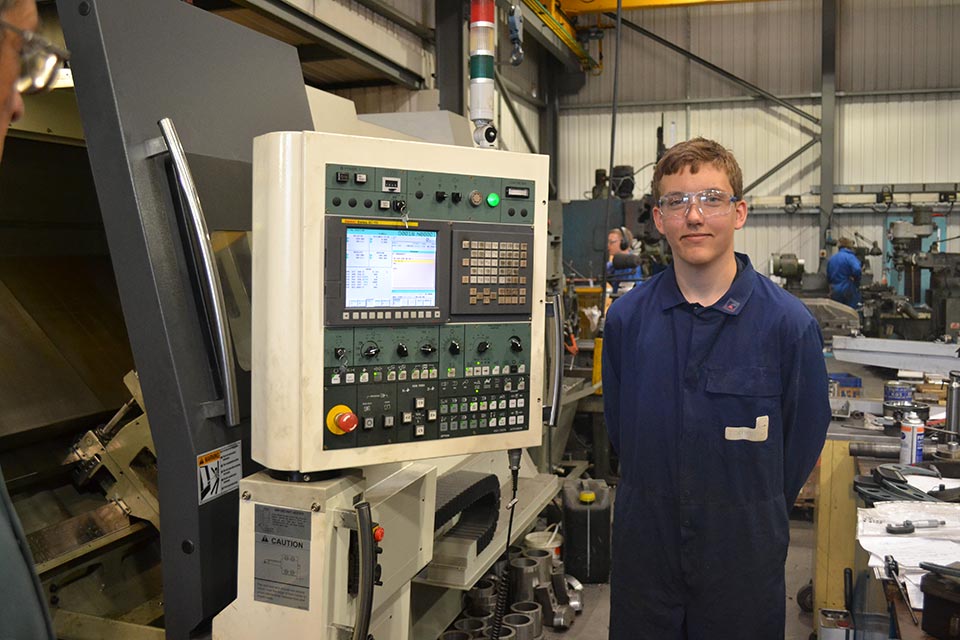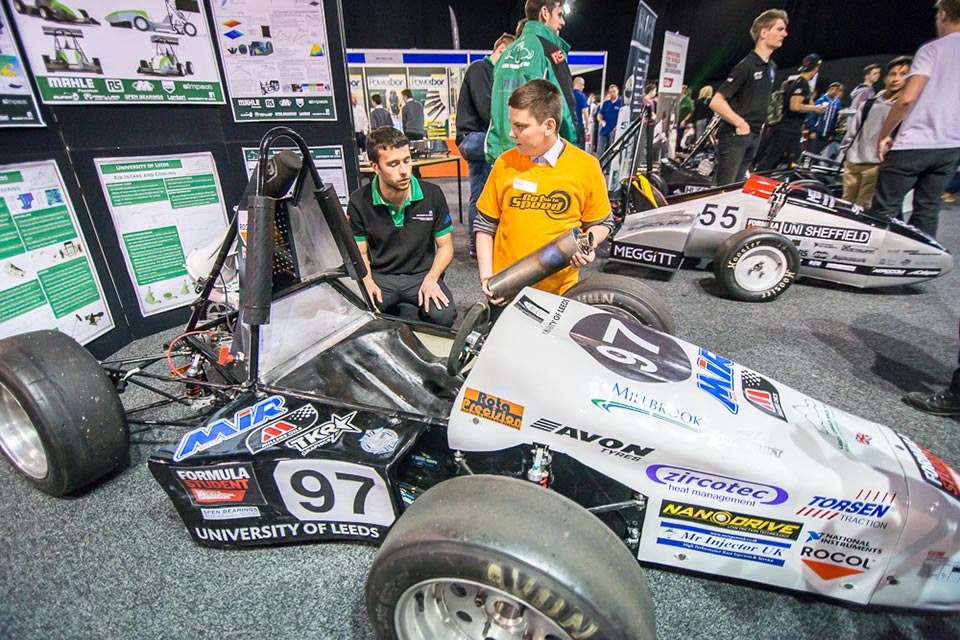Some of Britain’s biggest engineering companies are backing what they believe is a ground-breaking project to promote technical disciplines to young people, amid signs of growing government encouragement for their efforts.
The Engineering Talent Project being organised by the Royal Academy of Engineering (RAE) will focus on use of social media and advertising to convey “dynamic and exciting” images about technical disciplines in a bid to encourage more young people to consider careers in these areas and so reduce skills shortages.

In a tweet in September the head of the ETP said the new project – which will use the slogan "This is Engineering" – is "the biggest engineering promotion campaign since WWII [Second World War]". More than 10 companies have so far said they will pay for it, committing about £1.8m. The government’s industrial strategy, published in November, promised an additional £406m for maths, digital and technical education, “helping to address the shortage of science, technology, engineering and maths (STEM) skills”.
Employers and education groups have long argued that the unglamorous image of technical jobs – not just in manufacturing and engineering but in other fields too – has constrained economic progress. Made Here Now aims to raise the profile of Britain’s production industries and make them a more popular career choice among young men and women.
Richard Hamer, director of education at defence company BAE Systems, one of the big companies backing the ETP, says the scheme “will be an unparalleled multiyear communications campaign to encourage the take-up of careers in engineering”.
Other groups putting cash into the programme include Airbus, automotive and aerospace manufacturer GKN and Jaguar Land Rover.
GKN says the project should help “tackle the huge deficit of engineers we have in this country” while JLR sees the project as a “multi-intervention programme of work designed to promote engineering to a wide target audience”.
Four of the big companies supporting it – BAE Systems, Airbus and National Grid and Anglo American – are providing £125,000 each while Siemens is contributing more than £100,000. Babcock, JLR, Centrica and GKN have not said how much they are giving while others have yet to identify themselves.
Due for a formal launch in January 2018, the ETP is an effort to pull together some of the best ideas from many existing projects trying to boost interest in science and technology. It is being orchestrated by the RAE – which sets out “to advance excellence in engineering” – in association with the Tomorrow’s Engineers programme of EngineeringUK, a promotional agency.
It comes as government interest in boosting awareness of science and technology careers among the young appears to be on the rise. The industrial strategy mentions “skills” 192 times.
It describes a serious “unmet demand from employers” for STEM graduates: 40 per cent of employers say a shortage of STEM graduates is “a key barrier” in recruitment. Jobs in science, research, engineering and technology are expected to rise at double the rate of other occupations between now and 2023, the strategy says.
The ETP comes as the government organises a set of separate programmes to boost engineering as part of 2018 being designated the Year of Engineering. There is no formal link between the two projects.

There is no lack of activity in trying to boost interest in STEM among the young – about 600 organisations organise such schemes. A 2017 report by Prof John Uff describes a “staggering number of schemes promoting engineering in schools” with a “variety and overlap [that] is bewildering and wasteful”. Uff concludes that “whilst many are individually excellent, the net effect is not making sufficient impact [in boosting numbers going into STEM careers].”

Julie Nugent, outgoing chief executive of the Design and Technology Association (DATA), a charity that advises on school curriculums and supports teachers, says: “It often seems the [STEM] initiatives are taking place purely on an independent basis and without a plan or vision.” The association is a partner of the Made Here Now project.
Some of the 600 organisations have reported funding problems – perhaps due to heavy competition for a restricted pot of cash and with potential donors becoming more selective.
The most prominent casualty has been Young Engineers, a charity that said it had worked with 1m students in “several thousand” schools prior to its demise in mid-2017 after running up substantial deficits in three of the four previous financial years.
The charity, founded in 1983, was known for its Young Engineers clubs in which groups of schoolchildren participated in “hands-on” engineering activities. It was forced into liquidation after failing to replace funding from EngineeringUK and the Lloyds Register Foundation.
In 2015/16 Young Engineers recorded a loss of nearly £40,000 on spending of just over £300,000. Donations more than halved that year to just over £100,000.
"A factor which may have hindered Young Engineers' search for funding is that when the organisation started it was leading the way – now, more than 30 years later, there are countless STEM Clubs and organisations that deliver a similar offering,” says Susan Scurlock, chief executive of Primary Engineer, which also works on science and technology with schools.
DATA has also suffered funding problems. In 2016 the charity spent £1.4m and made a loss of £364,000. Donations and legacies fell from £393,000 in 2015 to £149,000. A government grant of £58,000 in 2015 was not repeated.
The charity submitted bids for £1.3m of funding in 2016 but received less than a tenth of that. Following a “restructuring” of its operations, Nugent, who leaves the association at the end of 2017, says it is on a “sounder financial footing”, set for a reduced deficit for 2017 and a “small surplus” in a few years’ time.
John Barber, who runs work-wise, a small STEM charity based in Sheffield, says most small groups such as his have “relatively small sources of income”. While they would like to bid for larger amounts, the processes needed are often “far too bureaucratic” for such organisations to manage.

Social media project to unlock “invisible profession”
The Engineering Talent Project marks a fresh attempt to show young people what engineers do. The hope is that the campaign – to use the broad heading “This is Engineering” – will lead to a greater willingness by children and teenagers to enter technology-based careers. One of the problems, says Daniel Rossall-Valentine, head of the ETP, is that while many young people are keenly interested in the products of technology – such as smartphones and other digital gadgets – they have little understanding of the process of creating these products. “Engineering is an invisible profession – we’ve got to be able to show how the jobs on offer are both full of interest and have a real purpose,” he says.
The project is being organised by the Royal Academy of Engineering in association with EngineeringUK, a lobbying group. EngineeringUK says that over the period to 2024, Britain will need roughly 186,000 new people a year to work in engineering jobs. At current rates supply will fall well short.
More than 10 big companies are funding ETP’s start-up costs, with BAE Systems, Airbus, Siemens, National Grid and Anglo American each having promised more than £100,000. People behind the project want to encourage other big companies to provide similar sums. Smaller amounts could come from smaller businesses. While no budget for ETP has been disclosed, people connected to the scheme regard £1m-£2m as a realistic target with virtually all the money coming from industry donations.
The ETP – due to be launched in early 2018 – will feature messages on social media and other forms of advertising about the jobs that involve engineering skills, from working on digital communications to making new materials.
A key theme will be to convey how individual engineers are increasingly required to be good at several specific technologies – from biochemistry to electronics –so they can work across disciplines on new products or processes. More people with engineering backgrounds are needed in such areas as sales and marketing where social skills are just as important as technical acumen. “The world needs engineers who think in big systems not little silos,” according to an ETP planning document.
It seems likely that the people working on ETP will take on ideas from Your Life, a three-year project finishing at the end of 2017. It has featured heavy use of social media and video to raise awareness among children and teenagers of science and technology. The scheme has been supported by companies including BAE Systems, Ford, Johnson & Johnson, Nestlé and Rio Tinto.
Edwina Dunn, chair of Your Life, says: “A key challenge is that too many young people are choosing the wrong options at school, leading to a shortfall [in people taking up studies and jobs in science, technology, engineering and maths] of 40,000 every year and rising…. [Our] research uncovered that young people see STEM [science, technology, engineering and maths ] subjects as dead-end for their future, despite the fact there will be 1.3m jobs in science by 2030.”
Peter Finegold, head of education at the Institution of Mechanical Engineers, says that as the ETP and similar schemes continue it will be important to improve how they are assessed. Too few people running promotional schemes have spent enough time monitoring success to see what works and alter the projects in line with results. A "more market-driven funding model” is needed, Finegold says.
EngineeringUK blamed as Young Engineers collapses
Support from the Royal Family plus a clutch of illustrious institutions and companies was not enough to prevent Young Engineers sliding into oblivion.
The charity, which counted the Duke of York as a patron and had received funding from the Royal Navy and companies such as ARM and Renishaw, went to liquidation in summer 2017 after funding sources started to dry up, casting doubt on its future. It was among the most prestigious of the many schemes promoting engineering and technology to young people.
The collapse will "be a blow to the sector" according to Atti Emecz, secretary of the the ERA Foundation, a charity supporting engineering and industry and a past funder of Young Engineers.
Bob Saunders, chairman of the organisation until its demise, accepts that Young Engineers "probably did not change fast enough to meet the changed circumstances [of a tougher fund-raising climate]". Other factors were decisions by two big backers – Lloyds Register Foundation and the EngineeringUK promotional body – to cut support.
While the foundation – a charity associated with the Lloyds shipping group – had been providing a larger sum of money, it told Young Engineers in 2015 it was stopping funding a year ahead of the date it pulled out, allowing the organisation time to find new donors. The foundation had given Young Engineers £170,000 in both 2014/15 and 2013/14. While Saunders says this was “significant" he does not criticise the foundation for its decision.
He is, however, critical of EngineeringUK – one of the biggest spenders on STEM awareness, with a £9.7m budget for 2015/16. Most of its funds come from top-flight engineers, who have some of the registration fees they pay to professional engineering bodies automatically directed to EngineeringUK.
EngineeringUK has been a large funder of schemes organised by other STEM groups, including Young Engineers. Much of this cash is channelled through EngineeringUK’s Tomorrow’s Engineers awareness raising programme.
Saunders says: “I believe that EngineeringUK has made significant progress in identifying and publicising the need to encourage young people into STEM subjects. But its approach has made it harder for other organisations involved with promotion of science and engineering in schools to gain the necessary finance in a tough fundraising climate.
“I question the way EngineeringUK treated the other participants in its Tomorrow's Engineers programme, such as Young Engineers. In my view EngineeringUK has failed to view them as partners. Instead its approach has been to establish programmes on its own terms which others are then expected to deliver.
“There has been little interest in the benefits of sustained interventions and opportunities for young people to benefit from multiple involvements in a number of initiatives throughout their school careers. This approach has been unhelpful, and I believe made it harder for us to continue.”
In recent years, Young Engineers had received large sums from EngineeringUK for its part in a Tomorrow’s Engineers project called Energy Quest, designed to interest young people in the technical challenges behind energy provision.
According to EngineeringUK accounts, Young Engineers received a total of £225,000 in the three financial years to 2017/18 for its role in Energy Quest. However, following changes in the funding of Energy Quest, no new cash would have come to Young Engineers under this programme from 2018/19 onwards.
In addition, through other parts of the Tomorrow’s Engineers programme, unrelated to Energy Quest, EngineeringUK provided Young Engineers with grants totalling £125,000 in the three years from 2013/14. There would have been no more money from these projects from 2016/17.
Chris Boyle, finance director at EngineeringUK, says: “Young Engineers was not involved in the delivery of Tomorrow’s Engineers projects apart from Energy Quest in 2016/17 and therefore EngineeringUK did not provide [it with] any grants in that year apart from the funding [for] Energy Quest.” He says no undertaking was made to Young Engineers that it would receive continuing funding through any EngineeringUK programme. Boyle declines to comment on Saunders’ specific criticisms of EngineeringUK.
Others have mixed views on EngineeringUK's record in working with others.
One person prominently involved with science and technology awareness projects, says: “When it was set up, Tomorrow’s Engineers was supposed to be a collective endeavour involving a partnership with other groups – but it never really happened and EngineeringUK always very much set the agenda."
Tony Moloney, head of organisation development at gas networks company Cadent, says EngineeringUK has made “huge strides in promoting engineering”. But he adds: "Tomorrow's Engineers has gone a bit quiet. The original idea behind it was to take the best ideas from the world of engineering and to form them into a common truth about what engineering means and why it represents a good career. I think we all need to get behind the programme and support its aims.”
Phillip Pratley, who works on schools-engagement at the UK arm of the Italian military equipment company Leonardo, says he has had positive experiences of working with EngineeringUK, particularly on its Big Bang fairs designed to boost interest among children and teenagers in science and technology. “Big Bang seems a success. This reflects well on EngineeringUK and they deserve credit for it.”
Photos courtesy of work-wise and Adrian Waine.
